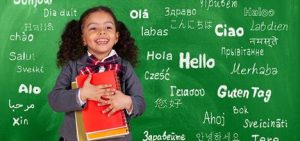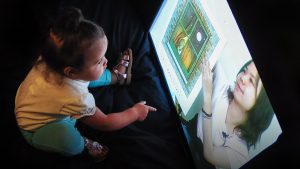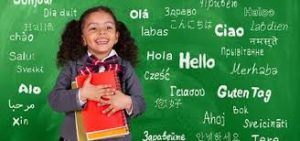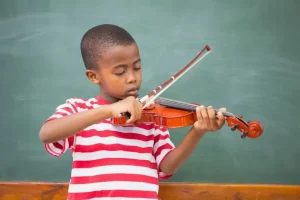
It has been found that young children can use gestures before language development begins, and these gestures can also predict future language development. The majority of previous studies that focused on gestures in young children have only observed them in neurotypical children; however, there is an increasing amount of work that also examines children who have been diagnosed with autism. One of the criteria necessary for an autism diagnosis is impairment in nonverbal communication, and it affects about 1 in 54 children in the United States. Since gestures have been proven to help aid in early identification and interventions for children who are more likely to experience language difficulties, this article looked to compare findings from both neurotypical and autistic children.
Neurotypical children are able to communicate with gestures before they are able to use spoken language. Their first gestures usually include showing or pointing, and the objects that they point to are more likely to be added to their spoken vocabulary. These gestures emerge around 10 months and by 14 months, pointing specifically at different objects actually predicts their language outcomes. Specifically, index-finger pointing and declarative pointing have been more strongly tied to vocabulary growth than whole-hand and imperative pointing. Painting has also been shown to be connected to an increase in vocabulary, with earlier and more frequent painting serving as strong predictors. Once children can combine speech and gesture (~2 years old) and they can convey meaning beyond single words, these combinations can predict syntactic development.
Children with Autism have shown a reduced amount of gesture production from infancy all the way through adolescence with declarative gestures. The findings for gesture production in children with ASD are mixed, with some studies showing lower performance and others showing similarities. Furthermore, Infants at an elevated likelihood of ASD, especially those who have an older sibling who is diagnosed, are at higher risk for language impairments. Some infants with elevated likelihood can perform as well as or better than neurotypical children, while others, mostly those who are diagnosed later, show reduced gesture use. Children with ASD and an elevated likelihood of ASD produce similar amounts of gesture types and gesture and speech combinations, which help predict language skills as well.
New research is suggesting that the quality and type of gestures may be more important than frequency. Gestures combined with vocalizations, or those used for joint attention and social interaction, are especially predictive of later language. On the other hand, gestures for behavioral regulation are not. In other words, for infants with ASD, the types of gestures rather than just the amount play a huge role in language development.
Overall, gestures allow children to convey meanings before they can do so in speech, and these early gestures consistently precede and predict vocabulary, syntax, and narrative development.
To read more, click here!
Alexandra Lagaros
UConn KIDS Research Assistant












